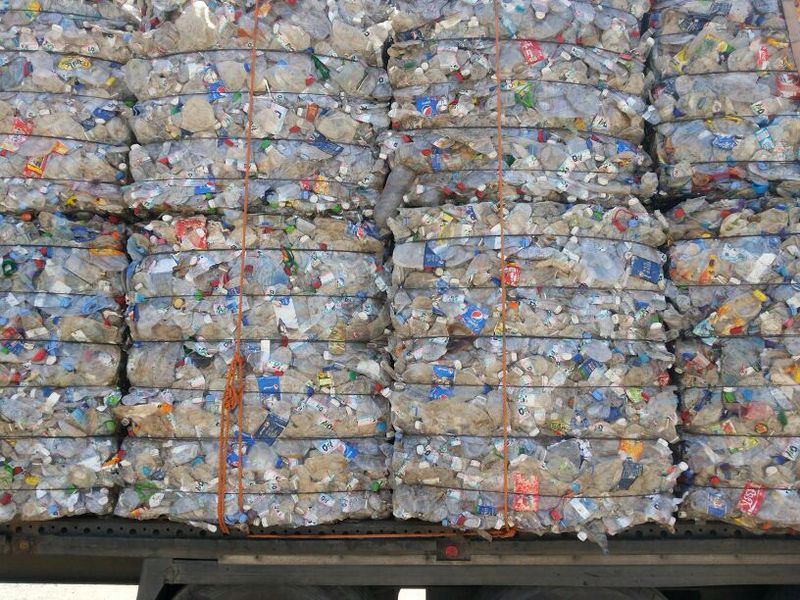- +966 53 456 8045
- Jeddah, Saudi Arabia
- [email protected]
what makes us different
Gathering plastic and textile scrap from manufacturing industries across Saudi Arabia.
Offering a range of plastic and textile scrap, including reprocessed, recycled, off-spec, and prime materials.
Utilizing advanced machinery for washing, recycling, and pelletizing materials at our facilities.
Supplying products globally with strong connections in the Middle East, Asia, Africa, Europe, and Latin America.
View photos from our facility in Jeddah, Saudi Arabia, and see our operations in action.



Explore Our Diverse Range of High-Quality Products
Available Forms:
Polycarbonate is a transparent, amorphous polymer known for its exceptional physical properties, including outstanding impact resistance (almost unbreakable), heat resistance up to 125°C, and excellent clarity. It is available in opaque and translucent grades. This versatile plastic is continually finding new applications, often replacing glass or metal in demanding situations where temperatures do not exceed 125°C.
Characteristics:
Applications:
Nylons, known as polyamides, are plastics characterized by amide groups (CONH). They include various types like Nylon 6,6; Nylon 6,12; Nylon 4,6; Nylon 6; and Nylon 12, offering a broad range of properties. Nylons are used in film and fiber production and as a molding compound.
Characteristics: Most nylons are semi-crystalline, known for their toughness and good thermal and chemical resistance. As the nylon number increases, specific gravity, melting point, and moisture content generally decrease.
Applications
Available Forms:
PBT / PET Overview
Polyethylene terephthalate (PET) is a thermoplastic resin from the polyester family, used in beverage and food containers, synthetic fibers, and various thermoforming applications. It’s a key material in man-made fibers and can be either amorphous (transparent) or semi-crystalline (opaque and white), depending on its processing. It is synthesized through a transesterification reaction between ethylene glycol and dimethyl terephthalate.
Characteristics Engineering plastics with excellent processing characteristics, high strength, and rigidity, suitable for a wide range of applications.
Applications
Available Forms:
Manufacturing Process:
Available Grades:
Overview Polyethylene, or polyethene, is a widely used thermoplastic, with over 60 million tons produced annually. Derived from the monomer ethene (ethylene), it is the most common plastic found in daily life.
Characteristics:
Applications:
Available forms:
Manufacturing Process:
PP Overview
Polypropylene is a thermoplastic that withstands temperatures up to the boiling point of water. It is used for making tubs, parts for washers and dishwashers, and fibers for carpets and upholstery (often referred to as “Olefin”). It resists most common alkalis and acids but can be damaged by solvents, boiling water, and citrus fruit rinds.
Characteristics:
Applications:
Available Forms:
Available Grades:
Overview: Polystyrene is a hard plastic made from styrene, a liquid hydrocarbon derived from petroleum. Typically a solid thermoplastic at room temperature, it can be melted for molding or extrusion and then resolidified. As an aromatic polymer, it offers unique properties.
Characteristics:
Applications:
Available Forms:
PVC Overview
PVC is made from raw materials derived from salt and oil. Chlorine, produced by the electrolysis of salt water, combines with ethylene from oil to form vinyl chloride monomer (VCM). VCM molecules are polymerized to create PVC resin, which is then customized with additives to form various compounds.
Characteristics:
Applications:
Available Forms:
Overview
Textile and fabric raw materials are essential in petrochemical applications and final products, primarily sourced from Polypropylene & Polyamide.
Application
In the textile and fabric industry, these materials have diverse applications. They can be recycled to produce granules, such as Homo-polymer Polypropylene for injection, available in our factory warehouse. They are also used directly to manufacture finished products like non-woven rolls used as coatings for furniture and mattresses. Yarn can be reused to produce non-woven fabrics or carpets.
Reach out to us to discover our diverse offerings in polymers and raw materials. Whether you need regrind, granules, films, or specialized compounds like PVC and Polyethylene, we provide solutions tailored to your industry needs.
